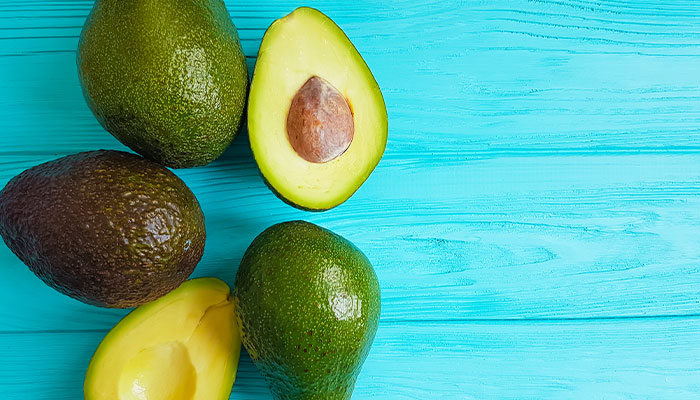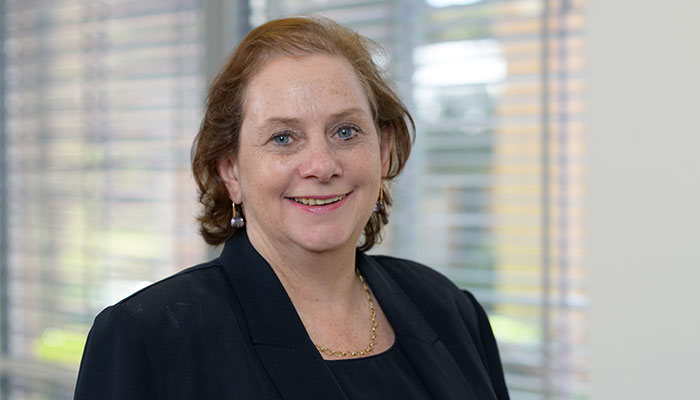It turns out there is a silver lining to being forced into lockdown. Macquarie University research reveals that for many, the overall impact of COVID-19 on employee satisfaction has been positive.

Inner workings: The new COVID-inspired 'avocado leader' has a hard business core on the inside but a soft and empathetic exterior.
In collaboration with consultants We Are Unity, Macquarie Business School academics completed a report – COVID-19: Crisis or Catalyst – on the impact of the pandemic on corporate Australia.
Associate Professor Denise Jepsen and Dr Sarah Bankins worked with We Are Unity on deep interviews with senior executives and middle managers from the top 200 ASX companies, most of whom had been deeply impacted by COVID-19 restrictions.
The findings show that the crisis has been a catalyst for major transformation in the way people work, focusing on improved mental health, faster and smarter ways of working and digital disruption to future-proof business. Almost two-thirds (63 per cent) of the leaders interviewed reported a boost to productivity, 57 per cent said collaboration improved, and 55 per cent said efficiency improved as a result of COVID-19.
Often, for the first time, we are seeing a human side to the organisation. In the past, there was less of the softness.
Jepsen says she is “surprised and delighted” by the high employee engagement, which she has not seen in previous COVID-19 research.
The results can be explained, she says, by managers in these large organisations needing to connect more closely than before to see what is happening in their department.
- How universities can help fill the skill gap in Australia
- Why is it so hard for so many Americans to vote?
“They can no longer just walk down the corridor and ask, so they are having to be more deliberate in their connection because they are not going to get the work done any other way.”
Jepsen says that with employees working from home, there is greater opportunity for deeper knowledge of the staff’s domestic circumstances, such as their pet’s name, number of children and interior design choices.
‘Avocado leader’
Some companies created opportunities such as cooking mornings and other virtual team events to encourage engagement.
They have even coined the term ‘avocado leader’ – someone with a hard business core on the inside but a soft, mushy and empathetic exterior – to describe this new COVID-inspired form of manager.
“Often, for the first time, we are seeing a human side to the organisation. In the past, there was less of the softness,” she says. “In some ways it was thrust upon them, but it is still a good outcome.”
As decision-making and delivery of projects have been accelerated ... how many really bad decisions have been made, and is this coming back to bite us.
One healthcare leader told the researchers: “COVID-19 forced us to learn to listen, learn and adapt. Contribution and collaboration now come well before policy and hierarchy.”
Another contributing factor for the improved employee engagement is that former remote workers are now operating on a level playing field.
“Everybody’s in the same boat so those people who were previously excluded or less included are now more equally connected and are feeling more engaged than ever before,” she says.
The report also found that 87 per cent of leaders believed their organisation was agile in responding to COVID-19, with 74 per cent attributing improved performance through the use of technology and video conferencing.
It’s not all roses
Jepsen warns that it is not all positive. More than half (56 per cent) of organisations surveyed say that the increased pace and productivity has come at the expense of mental health and employee burnout.
She is also concerned about what comes next. “I can’t imagine we are going to live happily ever after,” she says.
- Why do mozzies bite some people and not others?
- Discipline 101: a science-backed guide to reaching your goals
“As decision making and delivery of projects have been accelerated through this period, how much governance has been missed and how many really bad decisions have been made, and is this coming back to bite us?
“I also think we are going to find some pushback from employees who are now stuck with less choice to work from home or not. And will their managers revert back to pre-COVID behaviours of command and dictate or will they continue to demonstrate vulnerability and co-create with their employees?”
The research team plans another round of interviews that they hope will answer some of these questions.

Associate Professor Denise Jepsen (pictured) is from the Department of Management at Macquarie Business School.



